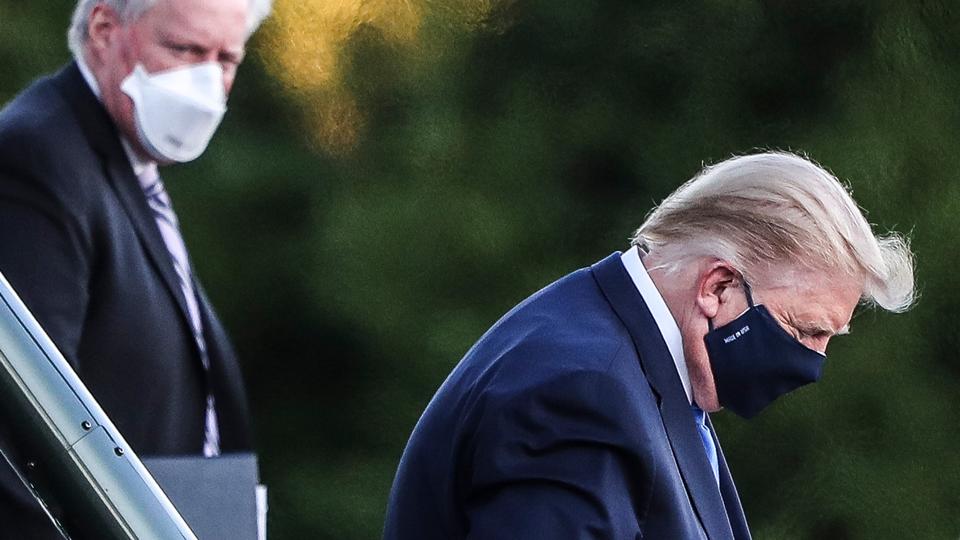US President Donald Trump boards the presidential helicopter waiting to transport him to a military hospital, October 3, 2020.
October 3, 2020.
Among other risk factors, President Donald Trump’s age, obesity, elevated cholesterol and gender put him at greater danger of becoming seriously ill from the coronavirus infection, he disclosed early Friday.
President Donald Trump has several strikes against him, age, obesity, elevated cholesterol and being male, that could put him at greater risk of becoming seriously ill from the coronavirus infection, he disclosed.
Trump’s doctor, Dr Sean Conley, later on Friday said the president felt fatigued and that he had been given an experimental treatment aimed at staving off a severe case of Covid-19.
Earlier, Trump was given an experimental antibody drug that’s currently in late-stage studies from Regeneron Pharmaceuticals Inc.
Friday evening he was flown to a military hospital where he will spend a “few days”.
Conley, said the president had been given remdesivir at the military hospital.
Being there would allow for closer monitoring, such as if doctors decide they’d like scans of his lungs, and a quicker reaction time if he takes a turn for the worse.
“The odds are far and away that he’ll have a mild illness” as most people with the virus do, said Dr Gregory Poland, an infectious disease specialist at the Mayo Clinic who has no role in Trump’s care.
But Covid-19 is very unpredictable, he stressed.
“We have young people who die. We have nursing home patients, a lot of them, who actually do quite well,” Poland said.
Here’s what experts say about Trump’s outlook and next steps.
Signs and symptoms
Infection causes mild or no symptoms in about 80 percent of cases. About 15 percent of people become seriously ill and 5 percent get critically ill.
Symptoms, when they do occur, usually appear two to 14 days after infection and can include loss of smell or taste, coughing, a sore throat, trouble breathing, fatigue, muscle or body aches, headache, nausea or vomiting, diarrhea and fever.
Up to half of patients who are hospitalised don’t have a fever when admitted but nearly all develop one. How people fare varies widely, some seem to be recovering and then suddenly worsen.
Pneumonia, often with a specific appearance on X-rays, sometimes develops but complications in virtually every organ of the body have been reported.
Doctors also increasingly recognise that some people have long-lasting symptoms.
Via TRT

